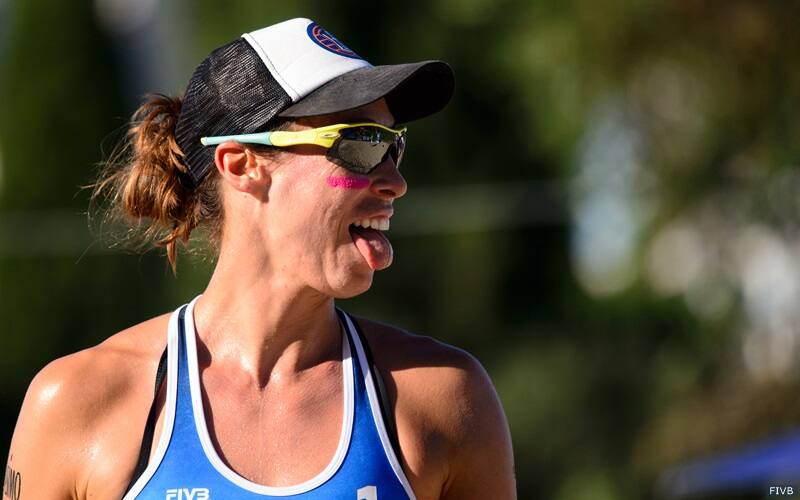
LONG BEACH, Calif. – Beat the heat and stay protected when you're out in the sun or hot temperatures.
Professional beach volleyball athletes provide their tips to accommodate for those hot and sunny summer days. Take it from these veterans, hydration and planning can make your day outside much more enjoyable.
Lauren Fendrick | 2016 Olympian
First, make sure you're really hydrated. That starts a couple days before you're playing, a couple days before you're out in the heat. You have to get adequate water, liquids and make sure you're getting electrolytes, some sea salt in there. My second tip is to wear a hat or protective clothing. Sunscreen can only protect you so much. You have to reapply and sometimes you forget and then you're diving around in the sand, you're sweating and wiping your face. Those would be my two big tips: hydrate properly, well in advance, and wear a hat.
This summer is getting hot @LaurenFendrick provides 2 tips to beating the heat @FIVBBeach pic.twitter.com/55kcgL1tk9
— USAV Beach (@USAVBeach) July 14, 2017
Casey Patterson | 2016 Olympian
I'm a father of three, soon to be four. The value of preparing for the beach and being out in the sun is a very serious and important thing. You get dehydrated much quicker than you think. The sun affects you much quicker than you think. Having long sleeves, an umbrella for shade, limiting your time in the sun, having hats and a lot of hydration are keys.
With hydration, it's not trying to make up for lost time. If you know you're going to be on the beach all weekend, you should hydrate leading up to that weekend. Once you feel dehydrated, it's almost too late. The symptoms won't go away for a while and you can't consume enough in time to recover. That's what we try to do with our kids, give them as much apple juice as possible as an electrolyte. A lot of sun block, reapplying a lot, trying to limit time to 1.5-2 hours in the sun before we take a break in the shade. As a player, I wear my sunblock, my hat, sunglasses. Really listen to your body.
Sara Hughes
When it's hot out, one of the main things to do is stay hydrated. Even though you may think you're not thirsty, you should be drinking water constantly. Every time you're off the court, it's important to get in the shade. To cool down, I personally like to put water on my feet - if you're not wearing sand socks. If you're not wearing sand socks and the sand is too hot, you run the risk of getting blisters, which could cause you to need to forfeit a match. Lastly, wear sunscreen. You don't want to get burned out there.
Kimberly DiCello and Emily Stockman
KD: Something I think is important is to stay ahead of hydration. Don't let yourself get to the point where you're really thirsty or feeling dehydrated. If you know you're going to be competing or playing out in the sun all day, preparation starts the night before and that morning.
ES: You can even go earlier than that with a full day before. That consists of electrolytes. A lot of people think they should keep drinking water, but that goes through you really fast. Electrolytes and potassium are huge.
KD: I try to avoid things that have a high sugar content. A lot of products put in electrolytes, but then they put in a lot of sugar and that sugar is not always the best thing for our bodies. I'm always looking for things that have the electrolytes I need, with low sugar.
Nicole Branagh | 2008 Olympian
If you're out in the sun and the heat during the day, in volleyball at all-day tournaments for example, as soon as you're done playing you should get off your feet and get in the shade. Stay hydrated with a balance of water and electrolytes. Make sure you are eating healthy foods that can hydrate you. Today I had some rice chicken, vegetables, a Gatorade and water. I try to find a balance of some kind of sports drink and water. While playing, it's important to hydrate because you're sweating a lot and losing that hydration in the process. You can't keep up with it during the match - after a game it is important to stay on top of it because it will catch up to you and can cause muscle cramps.
